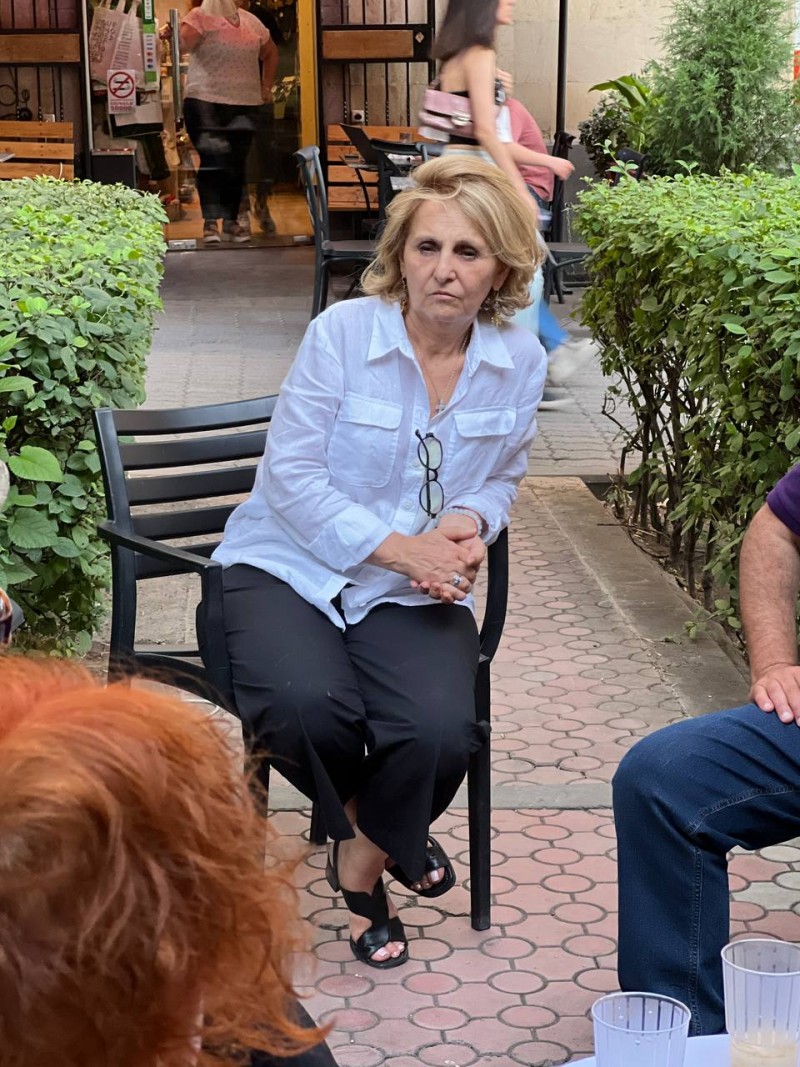Literary meeting at "ArtBridge" bookstore-cafe (photos)
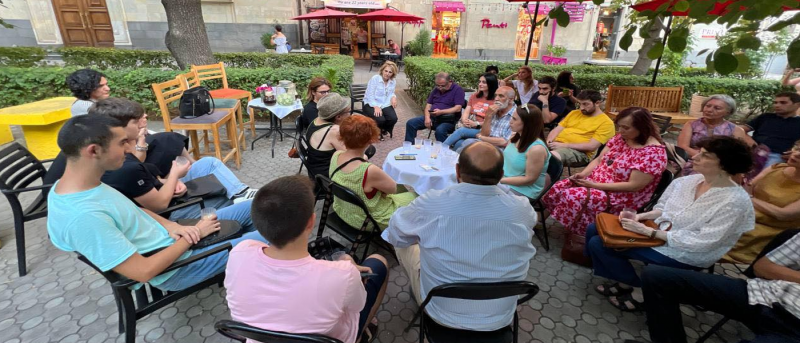
The Newmag Publishing House and "ArtBridge" bookstore-cafe initiate literary discussions. The first meeting was dedicated to the re-publishing of the "Inqnagir" literary magazine, the topic was "Literature in extraordinary times". In 2023, the 10th issue
The editor of the magazine Violet Grigoryan, writer, and publicist Marine Petrosyan and the authors took part in the discussion dedicated to the "Inqnagir". According to Marine Petrosyan, the connection between literature and reality is more visible today, because most of the citizens want, but do not know, how to help the country and their compatriots. And today, one of the strongest weapons in Armenia is literature. Art and literature are creations of life itself.
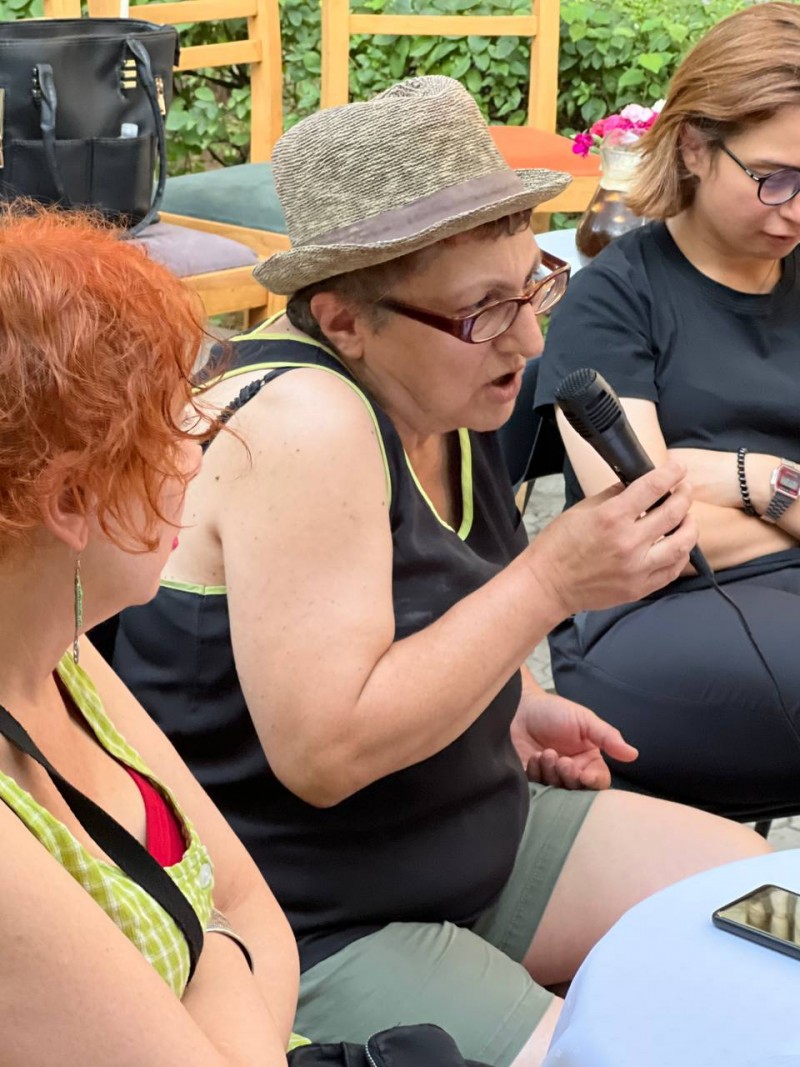
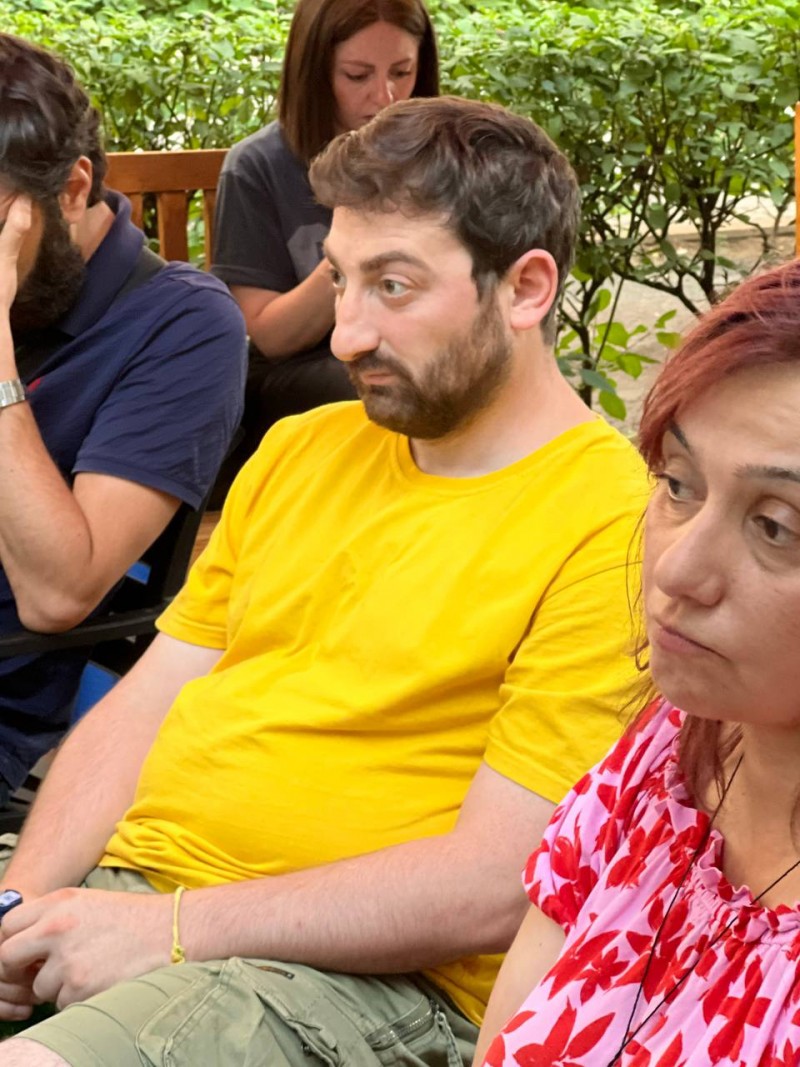
"In other words, the human being overcame the fear of death with art and literature. Today, Armenia is facing death, and in the face of that death strength is needed, politics in the classical sense does not work in Armenia, because it has become a toy in the hands of the stronger. And in this situation, when Armenia is powerless, has lost political and other protective measures, that power is in me, it is the power of literature. I was a desperate, sad and powerless person, but it was literature that helped me and changed me. Today, in this current situation in the country, it is absurd to create literature for prizes and other things. Today, literature should create a force that is completely possible."
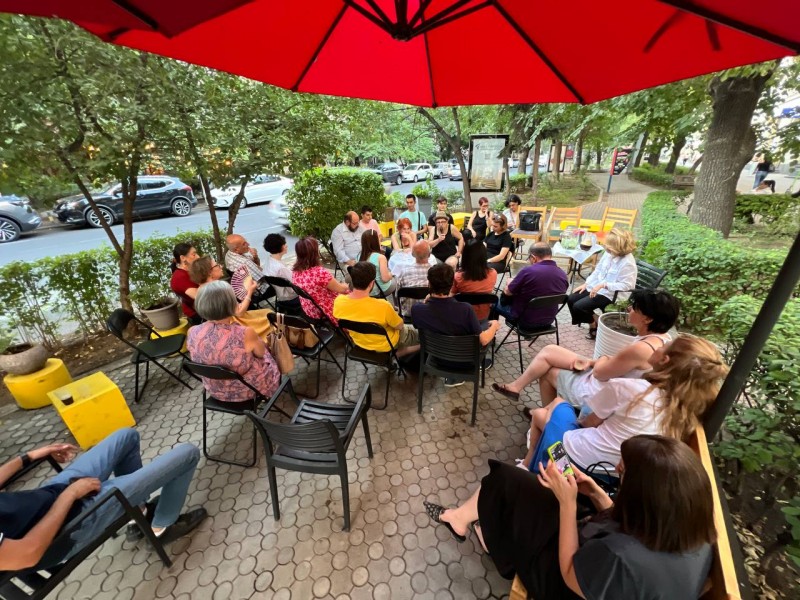
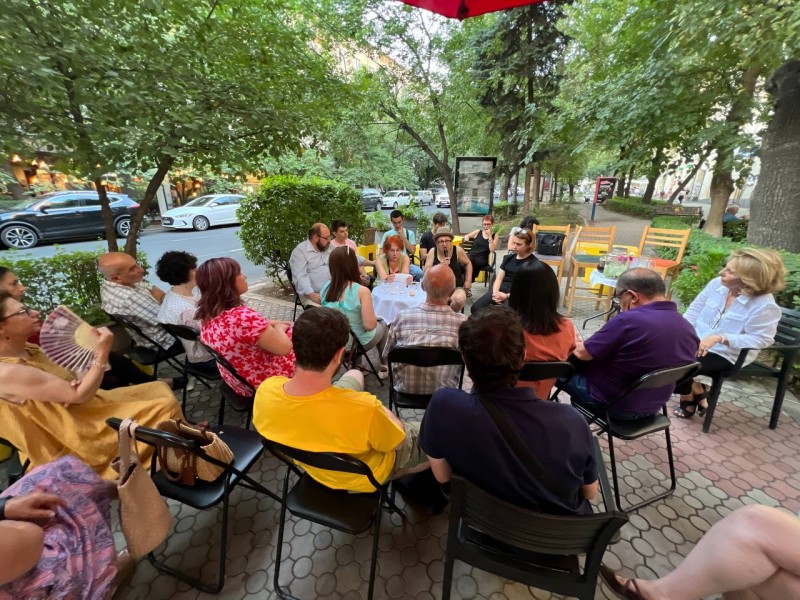
Poet Lusine Yeghyan, a contributor to the literary magazine "Inqnagir," perceives a potential danger in the assertion that literature can make some changes in our reality: “When we say, yes! The literature must make changes, the subsequent question emerges: What and how should be made? I avoid answering this question, because if I say “Yes”, the task should be implemented in some form and have faith in their feasibility—something challenging in the present era. There is an element of risk in this line of thinking”.
Novelist, playwright, and translator Gurgen Khanjyan was also in attendance at the meeting. According to him, up until the past 7 years, he only felt responsible for his own "self." "I was accountable for my wrongdoings, my conscience. However, there came a time when I realized that perhaps my latest novel, or even the whole literature, was affected, prompting me to assume a greater level of responsibility. Nevertheless, one aspect remains evident: writing hastily may result in some deterioration yet delaying writing leads to time passing without making progress; such challenges exist."
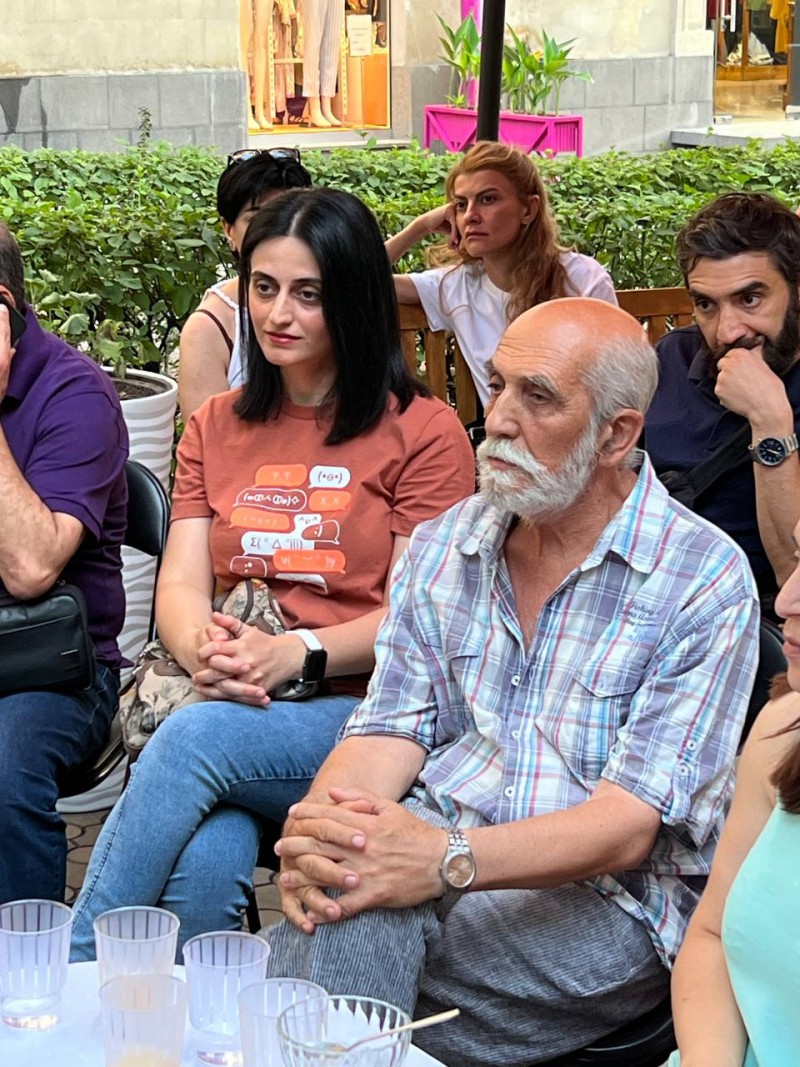
And why do writers avoid writing about the war and the current state of the country? Artak Aleksanyan, the CEO of the Newmag Publishing House, frequently encounters such criticisms and accusations. "I was tempted to align myself with that criticism, but I refrained. Writers are human beings with flesh and blood, and if they comprehend the unfolding events, their literature cannot be uninfluenced by that. They should have time to process these events initially. Moreover, the narrative is not a concluded one; we live in many aftershocks and when one tries to accept a little bit of the reality of defeat, another war emerges. When you try to accept a tragedy, another tragedy happens – the ongoing aftershocks and seismic shifts make it challenging for individuals to gather the necessary thoughts to construct a literary work. In this regard, I do not blame writers. They must first come to terms with their own existence within these times, strive to understand their inner being, and only then commit it to paper. Therefore, expecting a writer to have a coherent narrative amid ongoing, unstopped bloodshed is unrealistic. However, it's equally misguided to assert that our current reality can be entirely sidestepped, because we require guides, expert thoughts".
Violet Grigoryan, the editor of the "Inqnagir" literary magazine, disagrees with those who believe that literature serves as therapy. "There's one practice I find difficult to accept: using literature as therapy. This implies reducing literature to a mere instrument—writing to overcome your trauma. Is literature so minor? There are many other options to release someone, isn’t it? Let him, or her to write their doctor. Forget about literature as a healing instrument. Literature is a weapon, not a cure-all."
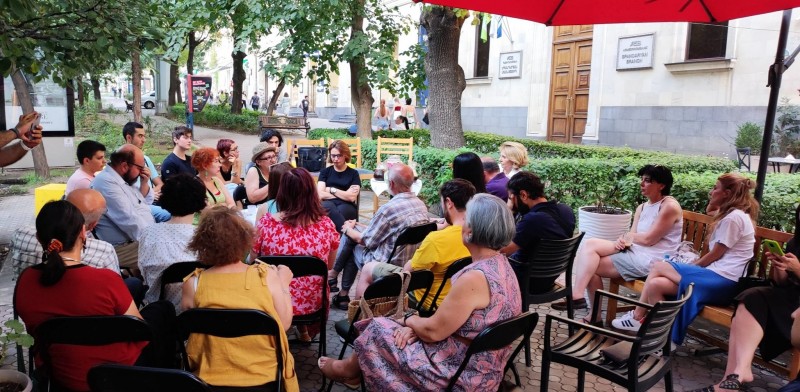
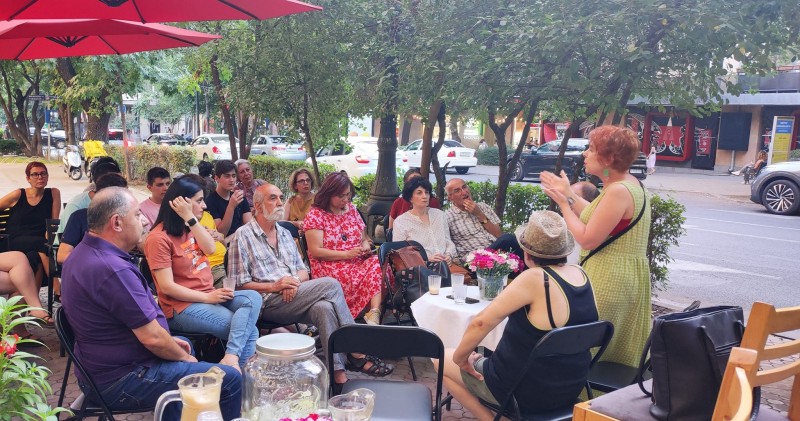
Writer and politician Aghvan Vardanyan established his own definition of literature long ago. "Literature is strengthened when it is an artwork. There is a possibility that, influenced by the current situation or concerns, our endeavors in that direction will inadvertently extinguish literature. And we will not preserve anything.
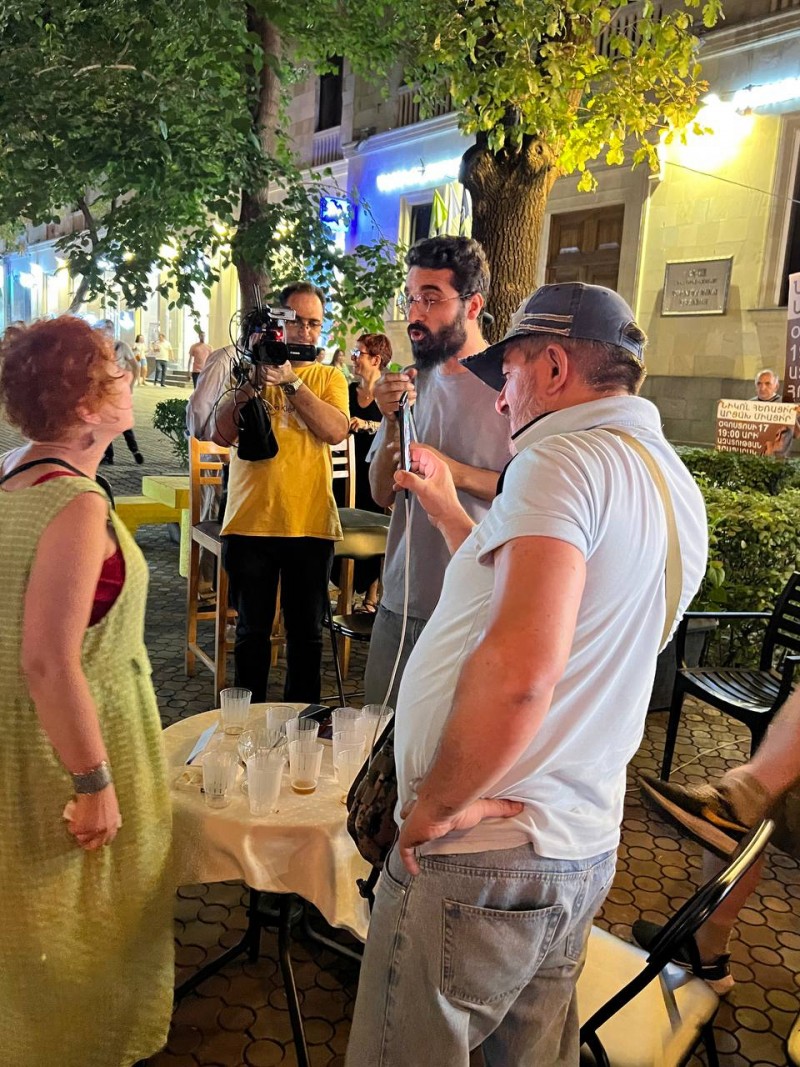
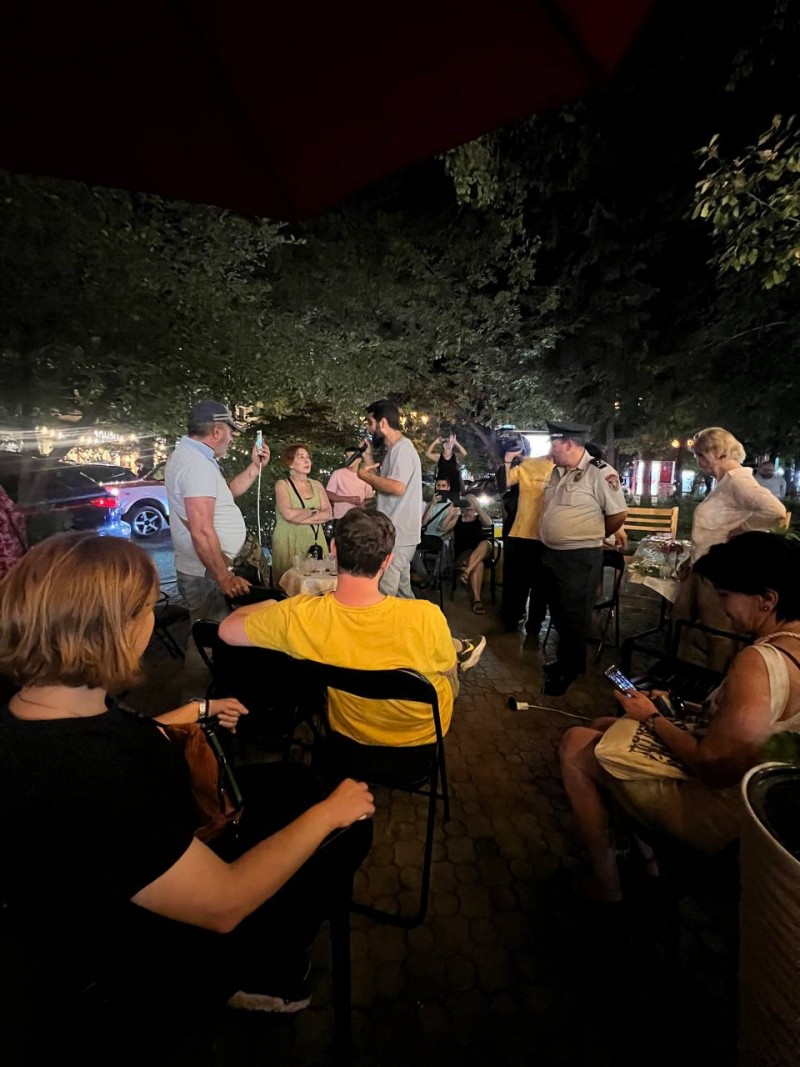
As director Hovhannes Ishkhanyan highlights, the matter of the writer's responsibility also comes into play. The writer pens a book at home while consuming news from the press. “This means, that the literature doesn't engage in fieldwork, and doesn’t go into the place, where the tragedy unfolds. Writers convey their sentiments through Yerevan, which can limit their creative output. However, for authentic creation writers should immerse themselves in the areas where disasters occur. And they can organically draw inspiration from their surroundings, thereby safeguarding against similar catastrophes in the future.
A book is more than just words; words alone don't secure success in the battle. Words, on their own, can change nothing. During the discussion, Violet Grigoryan touched upon Dadaism and provided an illustration using a poem containing repetitive words like "Blah-blah-blah," employed in response to political populism. Coincidentally, the members of the "Sasna Tsrer" organization were passing by the "Art Bridge" at that moment. Responding to their loudspeaker, Violet Grigoryan echoed "Blah-blah-blah," which didn't sit well with the marchers. Inquisitive about the context, they came close to Violet Grigoryan. She clarified that her response was literary rather than political. The conversation between them concluded with a mutual understanding: everyone fights for the country from his/her own perspective.
Read also

At Winterfest 2026, Newmag will present Henrikh Mkhitaryan’s memoir “My Life Always at the Center” (trailer)

Winterfest to feature David Georgyan’s sci-fi action novel Impedance (trailer)

At Winterfest 2026, Newmag will present Marianna Hakobyan’s “Don’t Change the Names” (trailer)

Closing and Award Ceremony of the “Sprout in Armenian – 2025” Competition at Newmag Winterfest


